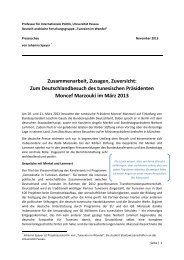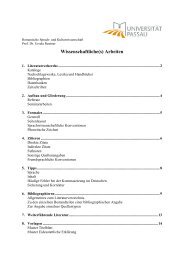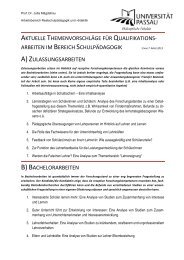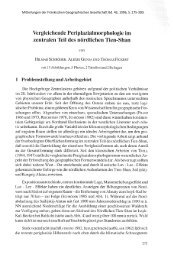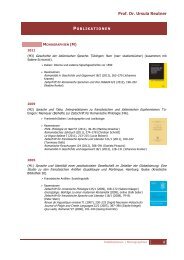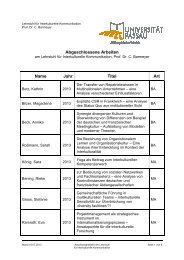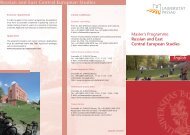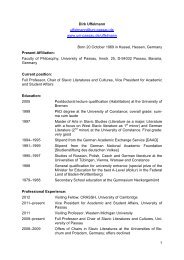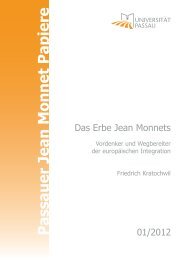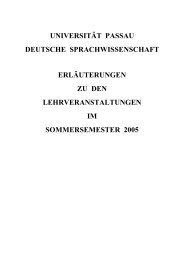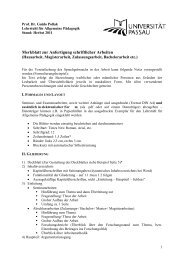The attempt to adopt a mixed-member proportional election system ...
The attempt to adopt a mixed-member proportional election system ...
The attempt to adopt a mixed-member proportional election system ...
Create successful ePaper yourself
Turn your PDF publications into a flip-book with our unique Google optimized e-Paper software.
37<br />
<strong>proportional</strong> <strong>system</strong>. Yet, for some reason, and despite all the preceding discussions,<br />
this supposedly simple, but fundamentally important, design difference did not seem<br />
<strong>to</strong> have reached the CDC debate, even at this late point in the constitution drafting<br />
process, with sufficient clarity, leading <strong>to</strong> much redundant and confusing debate.<br />
Pisit Leeahtam added an objection <strong>to</strong> the MMP <strong>system</strong> that resulted from its<br />
envisaged application by using the 320 <strong>to</strong> 80 formula. In this version of the <strong>proportional</strong><br />
<strong>system</strong>, he pointed out, if a party had already received as many constituency<br />
MPs as it could claim according <strong>to</strong> its <strong>proportional</strong> vote share, then nobody from the<br />
party list would become MP. In other words, those candidates who s<strong>to</strong>od on the party<br />
list part of the <strong>election</strong> <strong>system</strong> would be eliminated.<br />
This contradicts our intention for having the <strong>proportional</strong> <strong>system</strong>, because<br />
we want people with different characteristics, who have mainly national<br />
orientations and not mainly provincial or constituency orientations, <strong>to</strong> do<br />
political work. We want people of this kind <strong>to</strong> get in<strong>to</strong> [the political <strong>system</strong>].<br />
<strong>The</strong>refore, we think that we should have a <strong>proportional</strong> <strong>system</strong> or<br />
the Party list [English in the original]. (CDC 39:96)<br />
In fact, the 80 MPs mentioned in the formula could not disappear, but would be given<br />
<strong>to</strong> those parties that had gained fewer constituency MPs than their <strong>proportional</strong> seat<br />
claim would suggest. 42 In any case, Krirkkiat could not go along with the direction the<br />
discussion was taking, making the accurate observation that,<br />
What had just been said entirely returns <strong>to</strong> the year 1997. This is for sure,<br />
irrespective of what you might think. It is the same as before. You do not<br />
think [in terms of] <strong>proportional</strong>ity. (CDC 39:97)<br />
Before Krirkkiat made this statement, he had reiterated that, in Bang Saen, they already<br />
had <strong>adopt</strong>ed a <strong>proportional</strong> voting <strong>system</strong>, only that they still needed <strong>to</strong> decide<br />
about the formula (320 <strong>to</strong> 80, or 200 <strong>to</strong> 200). <strong>The</strong>refore, he must have perceived that<br />
the direction the CDC discussion was taking represented a regression behind what he<br />
mistakenly assumed had already been achieved in Bang Saen. From the other end of<br />
the spectrum, Nakharin actually confirmed Krirkkiat’s impression by saying that what<br />
both Pisit and Phairote had talked about differed very little from the 1997 <strong>system</strong>. In<br />
addition, he contrasted their position with that of Jaran, stating,<br />
But if we use the entire country as a constituency, and only mark one<br />
number, that will be another <strong>system</strong>. We can perhaps call it <strong>proportional</strong>



